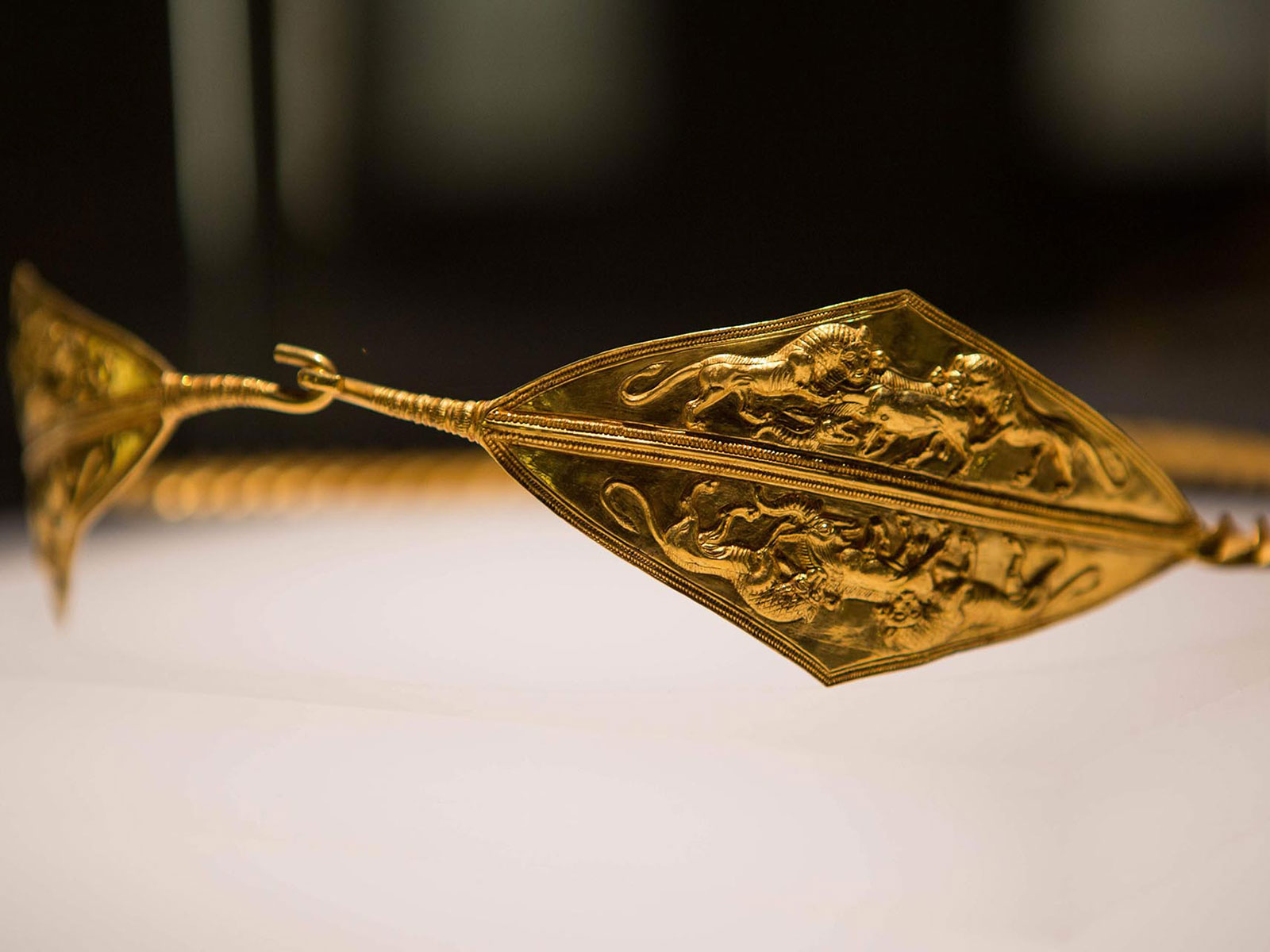Why This Ancient Civilization Fell Out of Love With Gold for 700 Years
Analysis of 4,500 artifacts suggests an early society between the Black and Caspian Seas turned against bling
Bridget Alex
Contributing Writer
December 17, 2021

A fifth century B.C.E. diadem, or headband, from Colchis, in the southern Caucasus. Steve Batiuk, ASOR Photo Collection under CC BY-SA 4.0
Four thousand years ago, the finest gold items on Earth belonged to the nomadic groups that roamed the mountainous lands between the Black and Caspian Seas. These communities herded animals for a living, but they also mastered gold working long before most societies. Their elites flaunted that bling, especially in their tombs, which were loaded with golden goblets, jewelry and other treasures. Word of this gold-rich land spread and spawned tall tales from faraway lands, like the ancient Greek myth of Jason and the Golden Fleece. In most versions of the legend, the hero and his crew brave a perilous journey to retrieve a magical ram’s gold-colored wool from Colchis—what is today the country of Georgia in the Caucasus Mountains.
But, according to new research published in Scientific Reports, gold fell out of fashion in the Caucasus and remained unpopular for at least 700 years. Analyzing more than 4,500 artifacts, discovered by archaeologists over the past 130 years, a researcher showed that gold items became rare across a large swatch of the territory between 1500 and 800 B.C.E. The locals seem to have decided, then, that gold was gaudy.
“This paper is important… because it reminds us that our values are not universal. Even something we tend to regard as a global commodity—that is gold, the allure of gold—is not universal in space and time,” says Cambridge professor Marcos Martinón-Torres, an expert on ancient metals who was not involved in the research.
And that shift may reflect more than fashion whims. The archaeologist behind the research, Nathaniel Erb-Satullo of Cranfield University in the United Kingdom, thinks the gold decline resulted from elites losing status. Perhaps, average folks decried the one-percenters of their day, and ostentatious markers of wealth, like gold adornments, went out of style. Down with the rich and their riches.
“I’m not saying it was a totally flat social hierarchy,” explains Erb-Satullo. But he sees a “turn away from glorification of the individual person.”
More:
https://www.smithsonianmag.com/science-nature/why-this-ancient-civilization-fell-out-of-love-with-gold-for-700-years-180979254/

